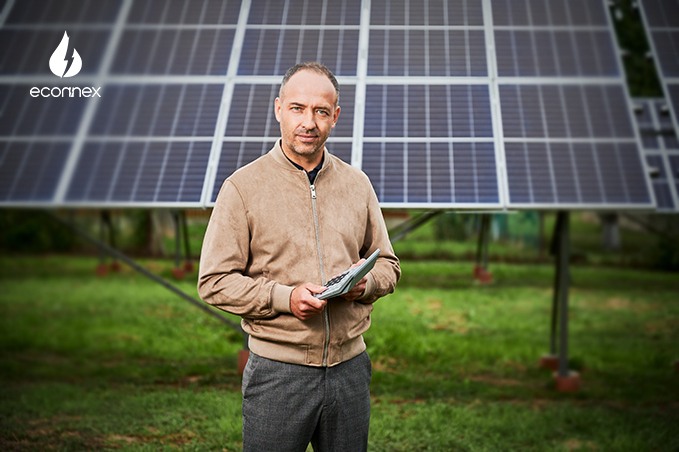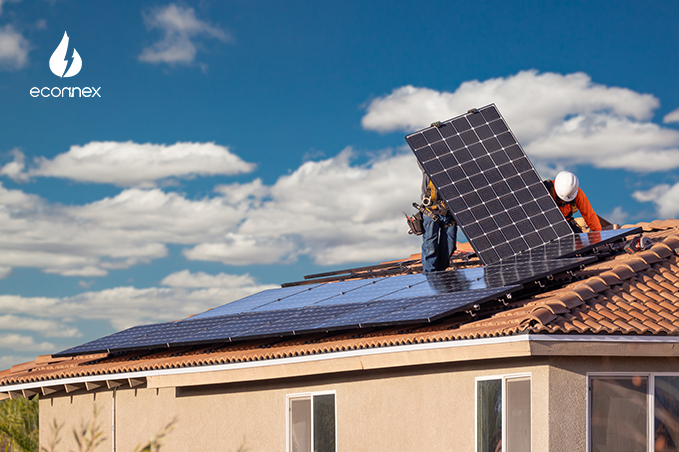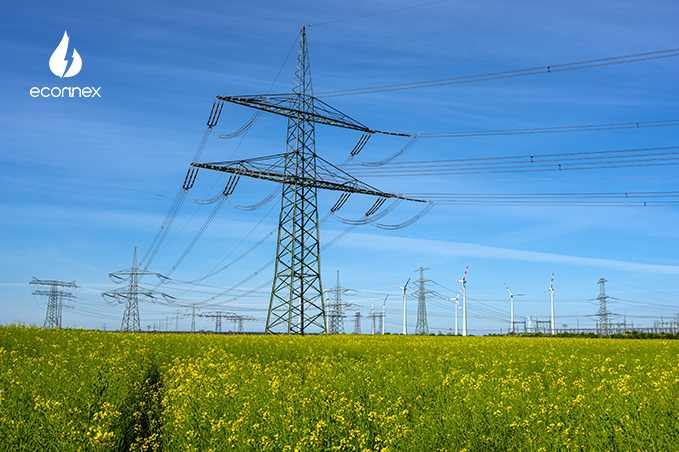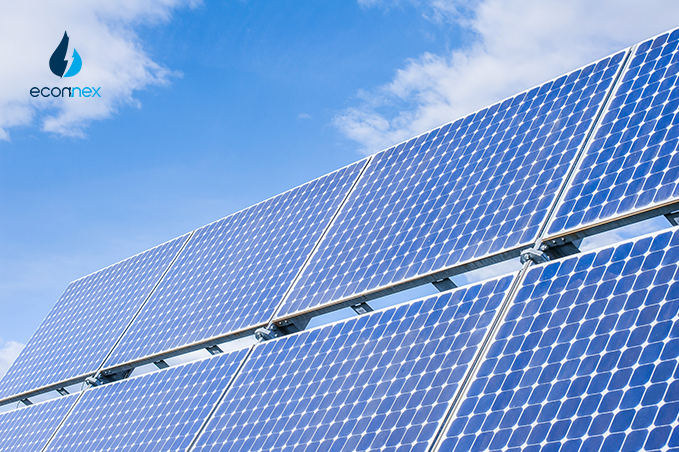Uncover the key considerations: 8 essential questions to ask before purchasing solar panels. Make your solar decision with confidence!

Published on 14/09/2023
By William Walton
Solar Comparison
Investing in solar can reduce your carbon footprint and energy expenditure simultaneously. It’s a popular way for households to save ethically, cutting back on fossil fuels while maintaining essential access to power and heating. With the technology improving daily and suppliers proliferating, more consumers than ever are deciding that it’s finally time to get on board.
However, there’s some due diligence required to make an informed decision. While the sheer volume of different products can appear complex to navigate, you can simplify the exercise by asking the right questions.
So, let’s explore the considerations before opting into solar to make for a seamless transition.
There are two primary reasons for engaging with solar: an environmental argument and an economic one. Firstly, buying a solar package has the potential to significantly impact your carbon footprint over time, reducing your reliance on fossil fuels in favour of cleaner, greener technology for your energy needs.
Further, you may be able to reduce your net energy expenditure over time. While a solar product can have a significant upfront cost, you make a saving for every kilowatt hour you take from it instead of the grid. Once you have produced enough solar power to equal the cost of buying and installing the panels, you are thereafter effectively producing household power free of charge.
While you might like the idea of a solar package in theory, you need to ensure that your property can accommodate the panels, inverter and other components required to make it work. To determine suitability, your roof must be checked for available space and any structural defects.
The aspect of the property and the pitch of the roof may also make a difference. You are more likely to maximise the return on investment in solar from a property with a high sunlight exposure level across the day. If the roof is regularly in shade, the output from a solar system will naturally decrease. Typically, a house with a south or southeast-facing roof in Australia is more likely to benefit from high sunlight exposure than others.
Check Solar Panel Installation Cost Breakdown
The average Australian household of three to four members uses approximately 20-25 kilowatt hours of energy per day. If you match that level of consumption, then the lower-capacity inverters and systems available to you may not accommodate your needs. Reviewing your energy statements from your grid provider ahead of time takes the guesswork out of determining the capacity level you need, helping to ensure that the size and capacity of the product you choose match your energy requirements before you start installing.
There are three main sizes of solar packages available for consumers on Econnex. While the performance does vary from one product to the next, we can give some general advice to help you gauge the most suitable sized solar system for your needs. All Econnex Comparison solar system packages include racking and installation.
To know how much energy you’ll need from your solar system, determine how much you currently use in mains electricity. Review your statements at different times of the year to ascertain your power profile across different seasons and at different times of the day.
Your energy usage will typically increase in the colder Winter months and the early evenings (when most household members are likely to be at home). In particular, the operation of heating/air conditioning units and electric vehicle chargers can significantly impact overall usage. Once you know how much electricity you currently use on a seasonal or monthly basis, you can begin to rule different solar products in or out.
Most Australian energy users are billed quarterly. In the statement, the energy retailer will detail how much energy the household consumed in kilowatt hours for the past three months. Some providers will also show how that usage compares to the same month the previous year (assuming you’re with the same provider).
To determine your average daily energy use, follow these steps:
Click here for a more detailed breakdown.
While reviewing your usage retrospectively is a fantastic start, you must also try and project into the future. Adding features and amenities to a house can significantly impact your energy needs, and you should account for those changes where possible. For example, suppose you know you plan to install a swimming pool on your property. This will likely increase your overall energy consumption due to the accompanying water pump, cleaning unit, heating unit, and other components. Similarly, a new electric vehicle, with its accompanying charging station, may have a significant impact.
Flagging purchases or installations likely to increase or decrease your consumption ahead of time can save you a lot of hassle. If you believe your usage is expected to increase in the coming months, perhaps it is in your best interests to opt for a higher-capacity solar package in the apprehension of that change.
There are several viable reasons to engage in solar. You might want to reduce your reliance on the grid, save on power bills or add value to the property for a future sale. The critical factor is that you invest accordingly. If you plan to on-sell the property shortly, limiting your expenditure on high-end solar products may be recommended, as you might not realise the value in the short term before you move out. That said, perhaps the capital growth secured from adding a top-tier product may be worth the upfront cost.
It's a matter of matching the product with your vision. The shorter your tenure at an address, the more scrupulous you should be before spending. On the other hand, if you plan on not moving for a significant period, higher expenditure on solar may be easier to justify.
Top Residential Solar Installers in Australia
Checking your upper limit for spending is critical AFTER you’ve gathered the information regarding current/future usage and tenure at that address. It’s like buying a car – first, you must determine which type of vehicle you need, and then you can check the budget to see which of the brands offering that product fits best. Otherwise, you may opt for a solar package that, while within budget, won’t match your actual energy requirements.
Also, some Australian banks and lenders offer ‘green’ loans or personal loan products to finance the purchase of solar systems. Speak to your trusted financial institution or advisor to explore the loan options available to you. Be sure to always read the terms and conditions of any loan product before applying.
Keep in mind that your current energy prices are not static either. For some consumers, the most apt question may not actually be “Can I afford to install solar?” but “Can I afford not to?” as fossil fuel-based energy prices have been steadily increasing, and this trend looks set to continue.
It’s essential that the suppliers and installers of your solar package are trustworthy and reputable. Thankfully, our Econnex platform simplifies and streamlines the process of product selection for customers to help ensure that they avoid risky operators. Our comparison service only details solar panels or products from companies that have demonstrated longevity in the global solar market. Additionally, all products for sale on our platform must conform to all industry accreditations.
It can be hard to differentiate between the vast array of suppliers on your own, but with Econnex you can feel assured that the providers and products have already been vetted. With that peace of mind, you can engage wholeheartedly in the process of identifying the most suitable solar package for your needs from one of our trusted vendors.
The age of solar is fast approaching, as the use of traditional energy whittles down, and the development of solar technology continues apace. Now is the time to compare and choose your ideal solar package with minimal fuss, leveraging the advanced Econnex platform to find the right solution for your home in minutes.



